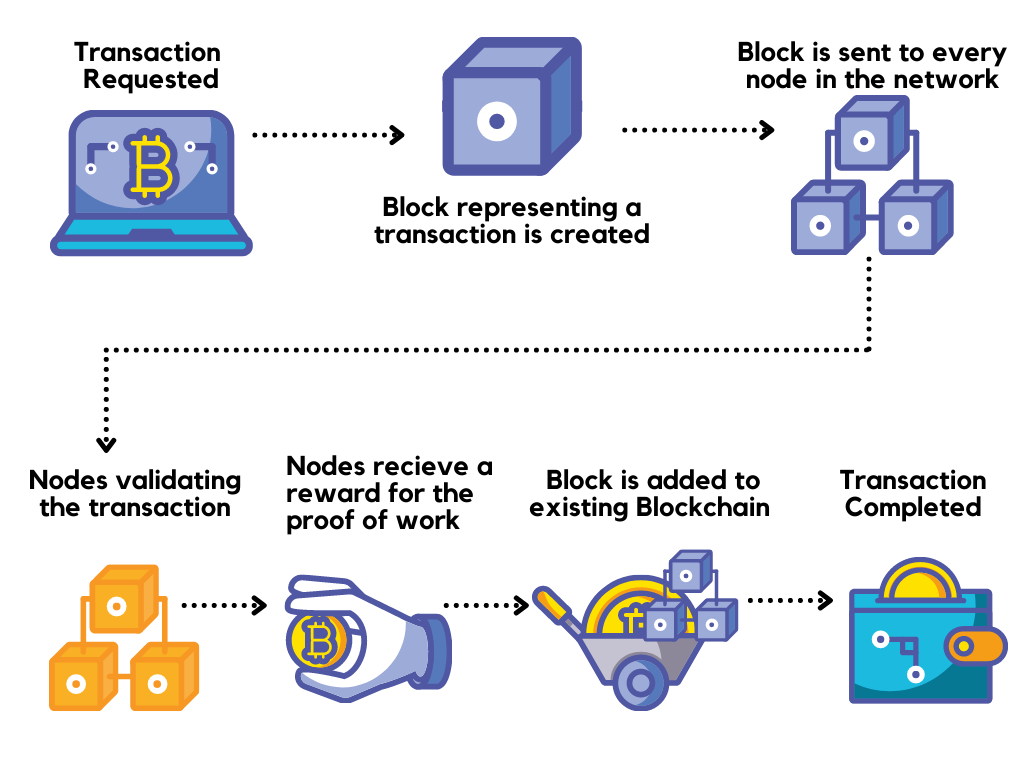Blitz News Digest
Stay updated with the latest trends and insights.
Blockchain: The Invisible Revolution Shaping Our Future
Discover how blockchain is quietly transforming our world and reshaping the future. Uncover the hidden revolution now!
How Blockchain Technology is Transforming Industries and Everyday Life
Blockchain technology is revolutionizing industries by enhancing transparency, security, and efficiency. Unlike traditional centralized systems, blockchain operates on a decentralized ledger that records transactions across multiple computers, making it nearly impossible to alter or hack. This innovation is particularly transformative in sectors like finance, where it facilitates faster and cheaper cross-border payments. Additionally, industries such as supply chain management benefit from the real-time tracking of goods, reducing fraud and errors while ensuring product authenticity.
Beyond industrial applications, blockchain technology is making a significant impact on everyday life. For instance, it empowers individuals to have more control over their personal data, thus enhancing privacy and security online. In areas like healthcare, blockchain can streamline patient records, making them easily accessible and tamper-proof. Furthermore, applications of blockchain in voting systems can ensure a more transparent electoral process. This technology is not just a trend; it is reshaping how we conduct business and engage with technology on a daily basis.

Understanding Smart Contracts: The Building Blocks of a Decentralized Future
Smart contracts are self-executing contracts with the terms of the agreement directly written into code. They operate on blockchain technology, ensuring transparency and security in transactions without the need for intermediaries. By eliminating third-party involvement, smart contracts reduce costs and increase efficiency, making them an essential component of the decentralized future. As industries across the globe embrace this innovative technology, the potential applications range from finance and supply chain management to real estate and healthcare, fundamentally reshaping how we conduct business.
At their core, smart contracts leverage decentralized systems to automatically execute actions when predetermined conditions are met. This eliminates the risk of manipulation or fraud, as the code is immutable and verifiable by all parties involved. For instance, a smart contract can automatically release payment when specific milestones are achieved in a project, ensuring that all stakeholders are protected. As we continue to explore the capabilities of smart contracts, their role in driving innovation and efficiency across various sectors will become increasingly significant, paving the way for a truly decentralized future.
Is Blockchain the Key to Secure and Transparent Voting Systems?
The emergence of blockchain technology has sparked discussions about its potential to revolutionize various sectors, including the electoral process. By utilizing a decentralized ledger system, blockchain can provide a level of security and transparency that traditional voting systems struggle to achieve. Each vote can be recorded as a unique transaction, encrypted, and distributed across multiple nodes, making it nearly impossible for anyone to alter the results without being detected. This inherent immutability of blockchain offers voters the reassurance that their participation holds true and that each tally is accurate.
Moreover, implementing blockchain in voting systems can significantly enhance accessibility and trust among the electorate. As voter anonymity is preserved through cryptographic techniques, individuals can cast their ballots without fear of intimidation or bias. Some propose using smart contracts to automate aspects of the voting process, ensuring compliance with regulations while reducing the chances of human error. This potential transformation not only preserves the integrity of the electoral process but also encourages higher participation rates, positioning blockchain as a promising solution for modernizing voting systems worldwide.